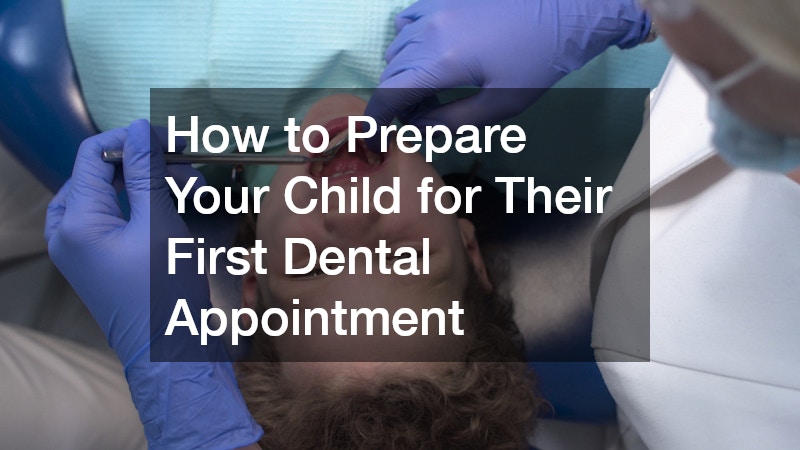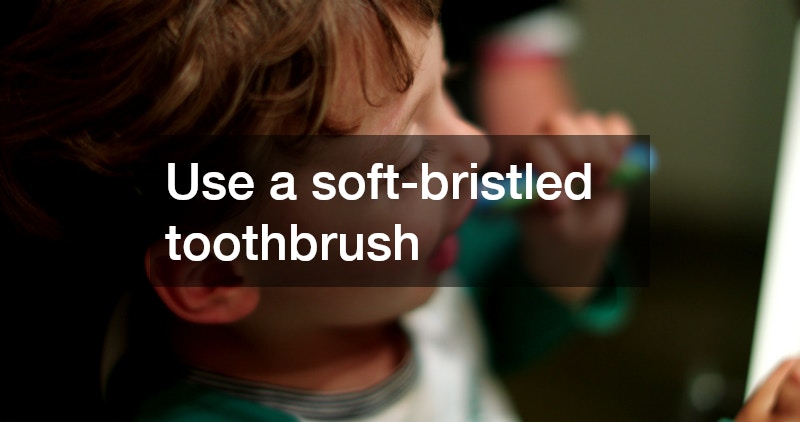Key Takeaways
-
Start early: Schedule your child’s first dental visit by age one or within six months of the first tooth to prevent problems and establish healthy habits.
-
Choose the right dentist: Pediatric or child-friendly dentists help create a comfortable, engaging experience.
-
Prepare emotionally: Use positive language, books, videos, and role-play to reduce fear and build familiarity.
-
Plan practically: Schedule appointments at optimal times, bring comfort items, and have documents ready to ensure a smooth visit.
-
Reinforce good habits at home: Supervise brushing, introduce flossing, and encourage a healthy diet to maintain oral health.
-
Manage fear and anxiety: Reassure your child, use distraction techniques, and celebrate bravery to create a calm environment.
-
Plan for urgent care: Same-day dental appointments provide timely relief for sudden dental issues, minimizing stress and preventing complications.
A child’s first dental appointment is an important milestone that sets the stage for their lifelong oral health. Parents often feel a mix of excitement and anxiety, wondering how their child will respond and whether the visit will go smoothly. Preparing your child both emotionally and practically can turn a potentially stressful experience into a positive, confidence-building milestone.
Early dental visits are about more than just checking for cavities—they establish trust, promote prevention, and help children develop healthy habits. Children who start dental visits at a young age often require fewer urgent visits later on. For busy families, options such as same-day dental appointments and emergency pediatric visits ensure that children receive timely care without long delays, helping to maintain oral health even when unexpected issues arise.
Why Early Dental Visits Matter
Scheduling your child’s first dental visit early—ideally by the first birthday or within six months of the first tooth erupting—is critical. Early visits help prevent problems before they develop and provide parents with the knowledge they need to support their child’s oral health.
Benefits of early dental visits include:
-
Preventing cavities and decay: Even baby teeth are susceptible to decay, which can affect speech, eating, and future permanent teeth. Early check-ups catch problems before they worsen.
-
Monitoring oral development: Dentists can assess bite alignment, jaw growth, and oral habits like thumb sucking or teeth grinding.
-
Building trust: Early visits help children feel comfortable in the dental chair, reducing fear of future appointments, including same-day dental visits if needed.
-
Parental guidance: Dental professionals provide advice on brushing, flossing, fluoride use, and healthy eating to prevent cavities and promote lifelong habits.
By combining prevention, monitoring, and education, early visits establish a foundation for long-term oral health and reduce the likelihood of emergency visits that require same-day dental appointments.
Choosing the Right Dentist for Kids
The right dentist can make a significant difference in how your child experiences their first appointment. Pediatric dentists specialize in children’s dental care and are trained to manage behavior, making the visit more comfortable for young patients.
Factors to consider when choosing a dentist:
-
Pediatric vs. general dentist: Pediatric dentists have specialized training in child psychology and behavior management, while general dentists may treat children but often lack a child-focused environment.
-
Child-friendly environment: Offices with bright colors, toys, and interactive displays reduce fear and make children feel at ease.
-
Communication style: A dentist who explains procedures simply and answers parent questions thoroughly builds confidence in both child and parent.
-
Convenience: Some clinics offer same-day dental appointments for urgent concerns or minor emergencies, allowing children to receive timely care without waiting weeks for an appointment.
Visiting the office before the first appointment can help your child become familiar with the setting, making the actual visit smoother and more comfortable.
Preparing Your Child Emotionally
A child’s emotional readiness plays a major role in how smoothly the first dental visit goes. Helping your child understand what to expect can significantly reduce anxiety.
-
Positive language: Avoid words like “pain” or “needle.” Instead, describe the dentist as a “tooth helper” who keeps their smile healthy.
-
Storybooks and videos: Age-appropriate resources about dental visits can make the experience seem fun and familiar.
-
Role-playing: Practice dental visits at home with a toy dentist kit to help children understand the process.
-
Model calm behavior: Children often mirror parental emotions, so showing confidence and relaxation helps them feel safe.
-
Normalize dental care: Talking about your own appointments or scheduling them near your child’s visit reinforces that dental care is a normal routine.
When children are emotionally prepared, they are more likely to cooperate, making visits—including same-day dental appointments for unexpected issues—less stressful.
Practical Steps Before the Appointment
Practical preparation ensures the visit goes smoothly and reduces stress for both child and parent.
-
Timing: Morning appointments are often best, when children are rested and alert. Avoid times near naps or after school.
-
Documents: Bring insurance cards, medical history, and questions for the dentist.
-
Comfort items: Favorite toys, blankets, or books can provide security and distraction.
-
Food and snacks: Offer a light meal beforehand but avoid sugary snacks that may interfere with cleaning.
-
Clothing: Dress your child in comfortable, easy-to-adjust clothes.
-
Same-day dental appointments: Keep this option in mind if sudden pain or accidents occur, ensuring your child receives prompt attention when needed.
These steps make the day smoother and help the child feel secure, while allowing the dentist to focus on care rather than managing stress or distractions.
What to Expect During the First Dental Appointment
Knowing what will happen during the visit helps both parents and children feel more confident. Most first appointments are designed to familiarize the child with the dental office and build comfort.
-
Welcome and introduction: Staff greet the child and may provide a brief office tour.
-
Oral examination: The dentist checks teeth, gums, bite alignment, and jaw development, and observes habits like thumb sucking.
-
Cleaning and polishing: A gentle cleaning may be performed if the child is cooperative.
-
Parent consultation: Guidance on brushing, flossing, fluoride, diet, and preventive care is provided.
-
Short duration: Visits are typically 30–45 minutes, focusing on comfort rather than complex procedures.
For urgent concerns, many offices offer same-day dental appointments to address sudden issues like toothaches, minor injuries, or infections, preventing escalation and providing peace of mind for parents.
Handling Fear and Anxiety
Fear is common, but it can be managed with patience and preparation.
-
Reassurance: Hold hands, speak softly, and provide encouraging words.
-
Distraction techniques: Music, storytelling, or toys can help shift attention.
-
Gradual exposure: Allow the child to explore the chair, touch tools, or watch demonstrations.
-
Positive reinforcement: Praise bravery and cooperation, emphasizing effort rather than perfection.
-
Behavior management: Pediatric dentists are trained to guide children calmly.
-
Same-day dental appointments: If a child experiences sudden pain or severe anxiety, immediate access to care reduces stress and ensures timely treatment.
Combining reassurance, distraction, and positive reinforcement can help even anxious children have a productive, comfortable visit.
Teaching Good Dental Habits at Home
A positive first visit is reinforced by consistent care at home. Establishing proper habits early helps prevent cavities and reduces the need for emergency care.
-
Brushing twice daily: Use a soft-bristled toothbrush with a smear of fluoride toothpaste for toddlers and a pea-sized amount for older children.
-
Flossing: Begin when teeth start to touch, guiding your child until they can do it independently.
-
Make it fun:
-
Colorful or character-themed toothbrushes and toothpaste encourage engagement.
-
Use timers, songs, or apps to ensure full two-minute brushing sessions.
-
Allow children to practice on toys to reinforce technique.
-
-
Healthy diet: Limit sugary drinks and snacks while encouraging fruits, vegetables, and water.
-
Parental supervision: Guide brushing until at least age 7–8 to ensure proper technique and consistency.
Consistent home care minimizes the likelihood of urgent dental problems and helps children feel confident about oral hygiene.
After the Appointment: Next Steps
Positive reinforcement after the first visit ensures children maintain a healthy relationship with dental care.
-
Celebrate milestones: Stickers, storytime, or small rewards create positive associations.
-
Review the visit: Emphasize bravery and cooperation to reinforce confidence.
-
Follow instructions: Implement dentist recommendations consistently at home.
-
Schedule follow-ups: Book regular check-ups every six months.
-
Same-day dental appointments: Keep this option in mind for sudden issues such as tooth pain, chipping, or swelling, ensuring immediate care when necessary.
Combining routine care with the option for urgent visits ensures children develop long-term positive habits and access timely care whenever needed.
Preparing your child for their first dental appointment involves emotional, practical, and educational preparation. Thoughtful planning, choosing the right dentist, and reinforcing positive habits at home help children feel secure and confident.
First visits are more than a check-up—they are an opportunity to build trust, reduce fear, and establish lifelong oral health habits. Families who utilize options like same-day dental appointments also have the peace of mind that urgent issues can be addressed quickly, making dental care accessible, convenient, and stress-free. With patience, preparation, and support, parents can turn the first dental visit into a positive, empowering experience that sets the stage for a lifetime of healthy smiles.

